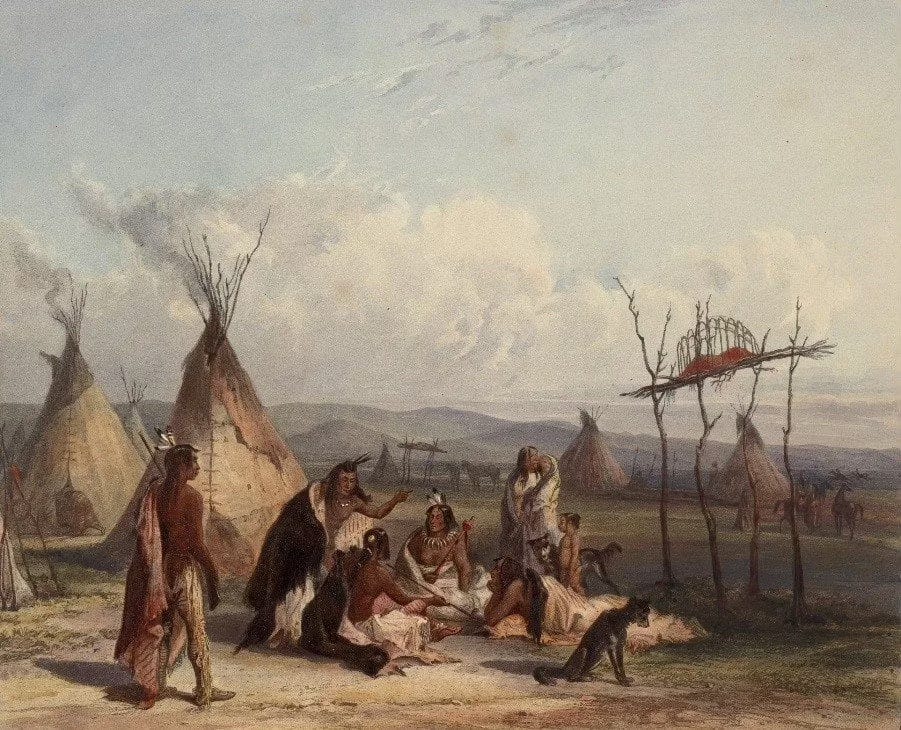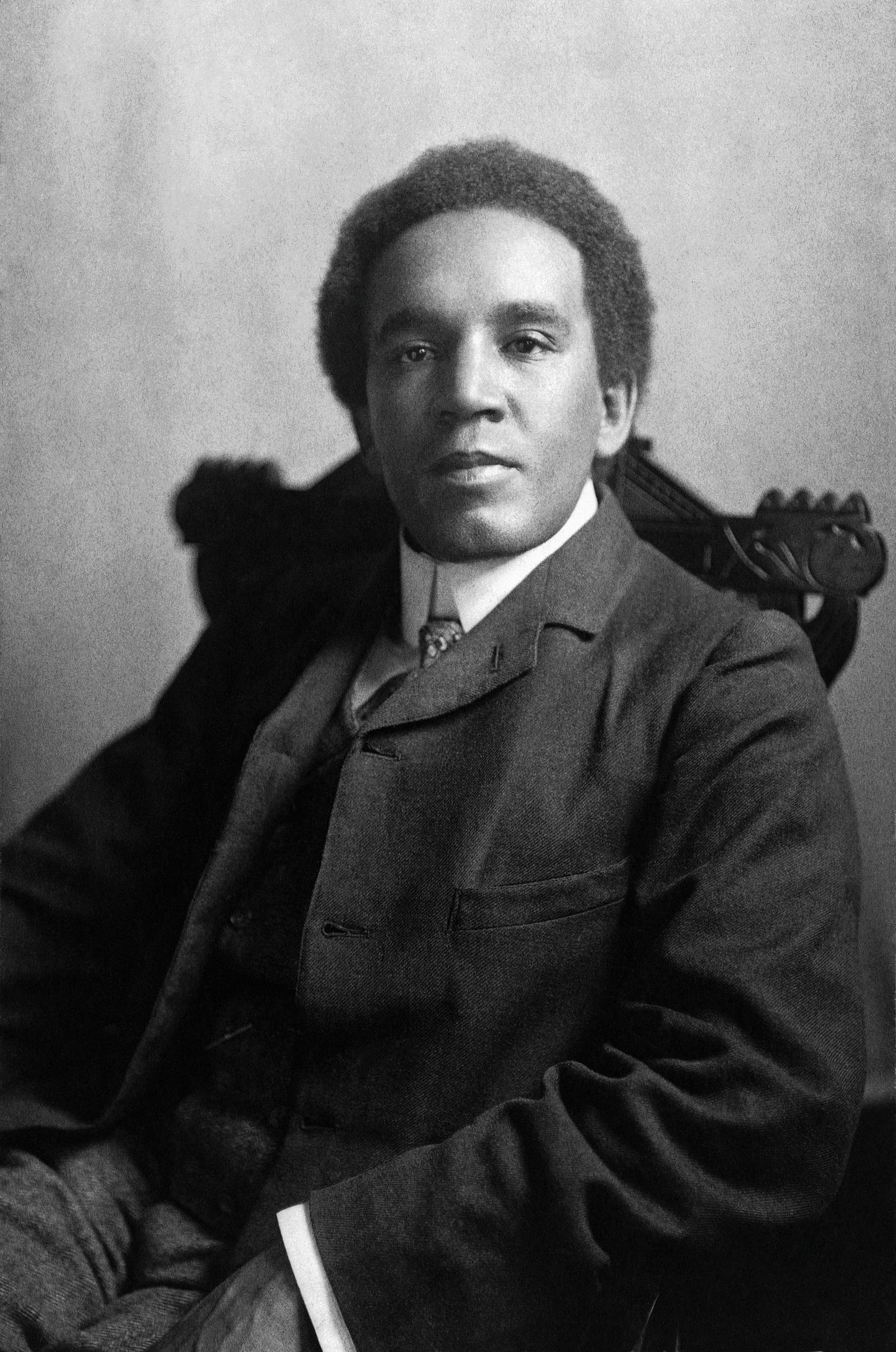This Day in Legal History: Starve or Sell
On August 15, 1876, the United States Congress passed a coercive measure aimed at forcing the Sioux Nation to relinquish their sacred lands in the Black Hills of present-day South Dakota. Known informally as the "starve or sell" bill, the legislation declared that no further federal appropriations would be made for the Sioux's food or supplies unless they ceded the Black Hills to the U.S. government. This came just two months after the Lakota and Northern Cheyenne had defeated General George Custer at the Battle of the Little Bighorn, a major blow to U.S. military prestige.
The Black Hills had been guaranteed to the Sioux in the 1868 Treaty of Fort Laramie, which recognized their sovereignty over the area. But when gold was discovered there in 1874 during Custer’s expedition, settlers and miners flooded the region, violating the treaty. Rather than remove the intruders, the federal government shifted blame and sought to pressure the Sioux into surrendering the land.
The 1876 bill effectively weaponized hunger by conditioning life-sustaining aid on land cession. This tactic ignored treaty obligations and relied on exploiting the Sioux’s vulnerability after a harsh winter and military setbacks. Despite resistance from many tribal leaders, the U.S. government eventually secured signatures under extreme duress. In 1980, the U.S. Supreme Court in United States v. Sioux Nation of Indians ruled that the Black Hills were taken illegally and ordered compensation—money the Sioux have famously refused, insisting instead on the return of the land.
Russian state-sponsored hackers infiltrated the U.S. federal court system and secretly accessed sealed records for years by exploiting stolen user credentials and a vulnerability in an outdated server. The breach, which remained undisclosed until recently, involved the deliberate targeting of sealed documents tied to sensitive matters like espionage, fraud, money laundering, and foreign agents. These records, normally protected by court order, often include details about confidential informants and active investigations. Investigators believe the hackers were backed by the Russian government, though they haven't been officially named in public disclosures.
The Department of Justice has confirmed that “special measures” are now being taken to protect individuals potentially exposed in the breach. Acting Assistant Attorney General Matt Galeotti said that while technical and procedural safeguards are being implemented broadly, the DOJ is focusing particular attention on cases where sensitive information may have been compromised. He did not provide specifics but acknowledged that the situation demands urgent and tailored responses. Judges across the country were reportedly alerted in mid-July that at least eight federal court districts had been affected.
This breach follows an earlier major compromise in 2020, also attributed to Russian actors, involving malicious code distributed through SolarWinds software. In response to both incidents, the judiciary has ramped up its cybersecurity efforts, including implementing multifactor authentication and revising policies on how sealed documents are handled. Some courts now require such documents to be filed only in hard copy. However, officials and experts alike have criticized Congress for underfunding judicial cybersecurity infrastructure, leaving it vulnerable to increasingly sophisticated attacks.
The situation raises ongoing concerns about the security of national security cases and the exposure of individuals whose cooperation with law enforcement was meant to remain confidential. Lawmakers have requested classified briefings, and President Trump, who is set to meet with Russian President Vladimir Putin, acknowledged the breach but downplayed its significance.
Russian Hackers Lurked in US Courts for Years, Took Sealed Files
US taking 'special measures' to protect people possibly exposed in court records hack | Reuters
A federal trial in California is testing the legal boundaries of the U.S. military's role in domestic affairs, focusing on President Donald Trump's deployment of troops to Los Angeles during protests in June. California Governor Gavin Newsom sued Trump, arguing the deployment of 700 Marines and 4,000 National Guard troops violated the Posse Comitatus Act, an 1878 law that prohibits the military from engaging in civilian law enforcement. Testimony revealed that troops, including armed units and combat vehicles, were involved in activities like detaining individuals and supporting immigration raids—actions critics argue cross into law enforcement.
The Justice Department defended Trump's actions, asserting that the Constitution permits the president to deploy troops to protect federal property and personnel. They also claimed California lacks the standing to challenge the deployment in civil court, since Posse Comitatus is a criminal statute that can only be enforced through prosecution. U.S. District Judge Charles Breyer expressed concern about the lack of clear limits on presidential authority in such matters and questioned whether the logic behind the Justice Department’s arguments would allow indefinite military involvement in domestic policing.
Military officials testified that decisions in the field—such as setting up perimeters or detaining people—were made under broad interpretations of what constitutes protecting federal interests. The case took on added urgency when, on the trial’s final day, Trump ordered 800 more National Guard troops to patrol Washington, D.C., citing high crime rates, despite statistical declines. The Justice Department has also invoked the president’s immunity for official acts under a 2024 Supreme Court ruling, further complicating California's legal path.
Trial shows fragility of limits on US military's domestic role | Reuters
The U.S. legal sector added jobs for the fifth consecutive month in July, nearing its all-time high of 1.2 million positions set in December 2023, according to preliminary Bureau of Labor Statistics (BLS) data. While this signals positive momentum, long-term growth remains modest; employment is only 1.7% higher than its May 2007 peak, showing how the 2008 financial crisis and the pandemic stalled progress. Big law firms, however, have seen major gains: between 1999 and 2021, the top 200 firms nearly doubled their lawyer headcount and saw revenues grow by 172%.
Still, the wider legal job market—including paralegals and administrative staff—hasn’t kept pace. Technological efficiencies and AI have reduced reliance on support staff, and the lawyer-to-staff ratio has declined steadily. Some general counsels are now using AI tools instead of outside firms for tasks like summarizing cases and compiling data, suggesting further disruption is on the horizon. Meanwhile, superstar lawyers at elite firms now earn upward of $10 million a year, driven by rising billing rates and high-demand corporate work.
Broader U.S. job growth lagged in July, with the BLS issuing significant downward revisions for previous months. President Trump responded by firing BLS Commissioner Erika McEntarfer, accusing her without evidence of data manipulation. On the law firm side, Boies Schiller is handling high-profile litigation over Florida's immigration policies, with rates topping $875 an hour for partners. Separately, Eversheds Sutherland reported a 10% jump in global revenue, citing strong performance in its U.S. offices and a new Silicon Valley branch.
US legal jobs are rising again, but gains are mixed | Reuters
The U.S. Supreme Court has declined to temporarily block a Mississippi law requiring social media platforms to verify users’ ages and obtain parental consent for minors, while a legal challenge from tech industry group NetChoice moves through the courts. NetChoice, whose members include Meta, YouTube, and Snapchat, argues the law violates the First Amendment’s free speech protections. Although Justice Brett Kavanaugh acknowledged the law is likely unconstitutional, he stated that NetChoice hadn't met the high standard necessary to halt enforcement at this early stage.
The Mississippi law, passed unanimously by the state legislature, requires platforms to make “commercially reasonable” efforts to verify age and secure “express consent” from a parent or guardian before allowing minors to create accounts. The state can impose both civil and criminal penalties for violations. NetChoice initially won limited relief in lower court rulings, with a federal judge pausing enforcement against some of its members, but the Fifth Circuit Court of Appeals reversed that pause without explanation.
Mississippi officials welcomed the Supreme Court's decision to allow the law to remain in effect for now, calling it a chance for “thoughtful consideration” of the legal issues. Meanwhile, NetChoice sees the order as a procedural setback but remains confident about the eventual outcome, citing Kavanaugh’s statement. The case marks the first time the Supreme Court has been asked to weigh in on a state social media age-check law. Similar laws in seven other states have already been blocked by courts. Tech companies, facing increasing scrutiny over their platforms' impact on minors, insist they already provide parental controls and moderation tools.
US Supreme Court declines for now to block Mississippi social media age-check law | Reuters
This week’s closing theme is by Samuel Coleridge-Taylor.
On this day in 1875, Samuel Coleridge-Taylor was born in London to an English mother and a Sierra Leonean father. A composer of striking originality and lyricism, Coleridge-Taylor rose to prominence in the late 19th and early 20th centuries, earning acclaim on both sides of the Atlantic. Often dubbed the “African Mahler” by American press during his tours of the U.S., he became a symbol of Black excellence in classical music at a time when such recognition was rare. He studied at the Royal College of Music under Charles Villiers Stanford, and by his early twenties, had already composed his most famous work, Hiawatha’s Wedding Feast, which became a staple of British choral repertoire.
Coleridge-Taylor’s music blended Romanticism with rhythmic vitality, often inflected with the spirituals and folk influences he encountered during his visits to the United States. He was deeply inspired by African-American musical traditions and maintained a lifelong interest in promoting racial equality through the arts. His catalogue includes choral works, chamber music, orchestral pieces, and songs—each marked by melodic richness and emotional depth.
This week, we close with the fifth and final movement of his 5 Fantasiestücke, Op. 5—titled "Dance." Composed when he was just 18, the piece captures the youthful exuberance and technical elegance that would characterize his career. Lively, rhythmically playful, and tinged with charm, “Dance” is a fitting celebration of Coleridge-Taylor’s enduring legacy and a reminder of the brilliance he achieved in his all-too-brief life.
Without further ado, Samuel Coleridge Taylor’s 5 Fantasiestücke, Op. 5 – enjoy!














